Both veterans and first-timers gathered at the University of Michigan–Ann Arbor in mid-June for another successful annual CGC Summer Institute (SI). Hosted by UM’s English Language Institute (ELI), this year’s SI addressed the theme of “Connecting and Collaborating as Leaders in Graduate Communication.”
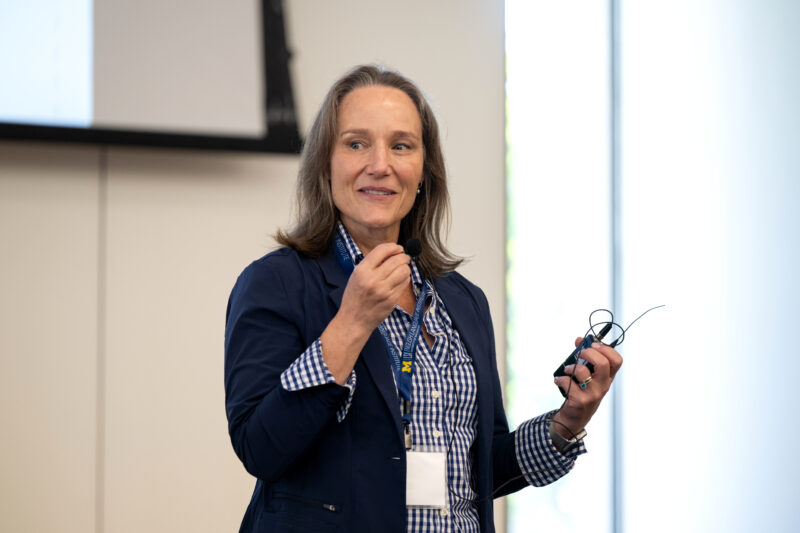
Attendees enjoyed an opening keynote from Dr. Jane Freeman on the value of disagreement as well as plenary talks by CGC Chair Dr. Kristina Quynn on leading initiatives during accelerated change and by CGC Secretary Dr. Rachael Cayley and Dr. Fiona Coll on co-editing and publishing an edited collection with UM Press. Two and a half days of presentations then addressed topics ranging from program sustainability and the use of generative AI to teaching students effective slide design and understanding their perceptions of writing center spaces.
“It’s an especially difficult time right now of financial and legal threats to our
—CGC Co-Chair Kristina Quynn
programs and our international students.”
“We were lucky to be able to see each other in person again after two years,” says Quynn, director of CSU Writes at Colorado State University. “It’s an especially difficult time right now of financial and legal threats to our programs and our international students, making inter-institutional camaraderie ever more necessary.” She adds, “Angelo [Pitillo] and his colleagues at UM did a fabulous job hosting the SI again. We can’t thank them enough.”
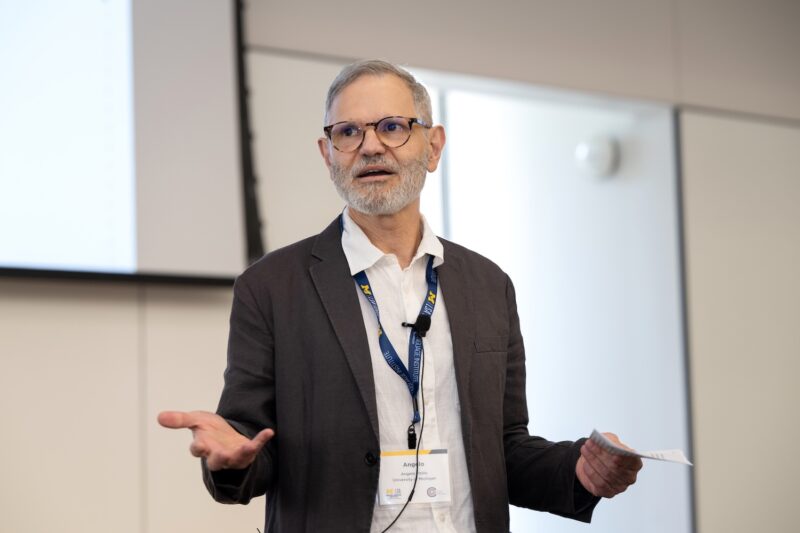
Pitillo, director of the ELI, adds, “We were thrilled to be able to host the SI for a second time, and I think everyone learned a tremendous amount. It was great to see so many familiar faces and to get to know other colleagues for the first time.”
Dr. Emily Swafford, Assistant Dean of UM’s Rackham Graduate School, welcomed attendees to UM and provided historical context. Jane Freeman, director of the University of Toronto’s Graduate Centre for Academic Communication, then delivered the provocative keynote “Disagreeing Effectively Is a Research Skill,” noting that discovery and innovation often begin with disagreement but that many students lack the confidence and communication skills needed to disagree in the service of a shared goal. She discussed the value of constructive disagreement in pushing the boundaries of what is known and accepted in a field; the tacit, culturally shaped assumptions that influence styles of disagreement; and practical strategies for helping our graduate students to disagree effectively.
“I was warmly welcomed by new colleagues in graduate communication and was
—First-time SI attendee Jacob Hermann
genuinely impressed with the quality of the speakers and sessions.”
“Once again,” Freeman says now, “the SI gave us in the field of graduate communication the precious opportunity to gather and learn from and with each other. I know we all came away with new ideas to implement in our programs, and the wealth of information shared was matched only by the pure pleasure of being together.”
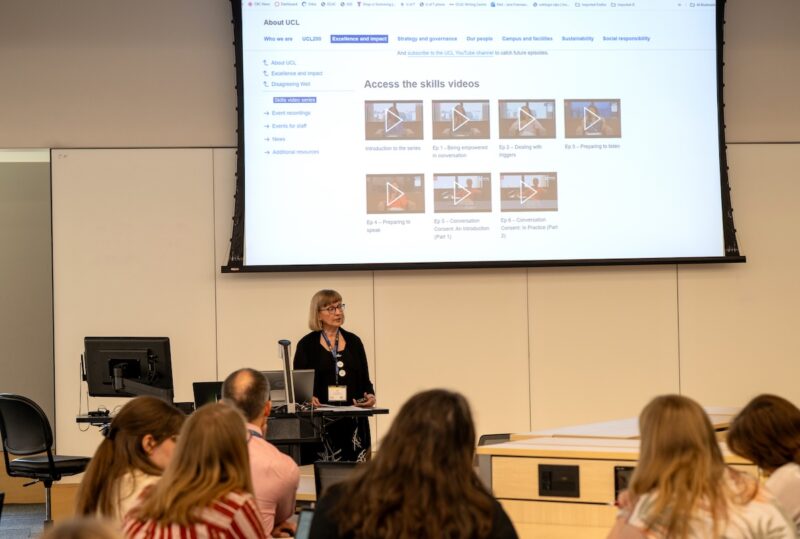
First-time SI attendee Jacob Herrmann, associate director of the Center for Academic and Professional Communication at Rice University, says, “I was warmly welcomed by new colleagues in graduate communication and was genuinely impressed with the quality of the speakers and sessions.”
At the business meeting on the second day, outgoing Board members Marilyn Gray, Talinn Phillips, and Brad Teague were thanked and honored for their long and invaluable service, and incoming Board Members-at-Large Ashton Foley-Shramm and Zoe Speidel Douglas (not present) were welcomed. Former co-Chair Dr. Linda Macri also won reelection in May and will be joining Kristina Quynn as co-chair again starting July 1.
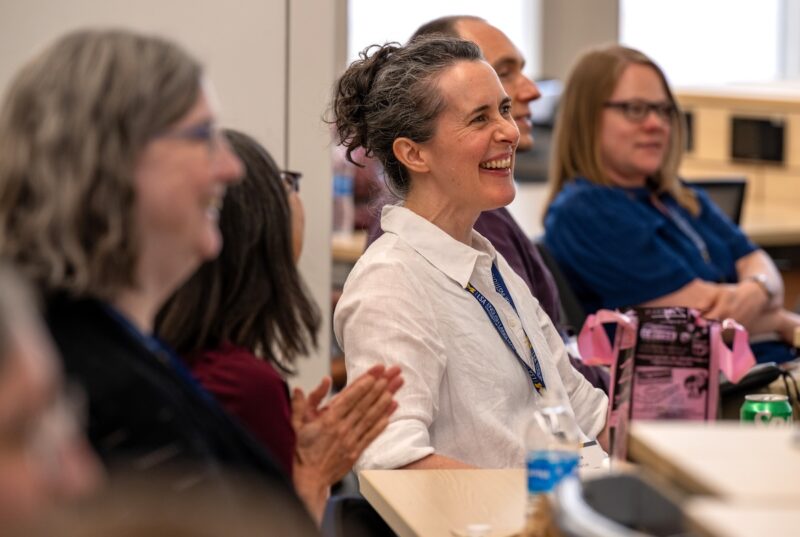
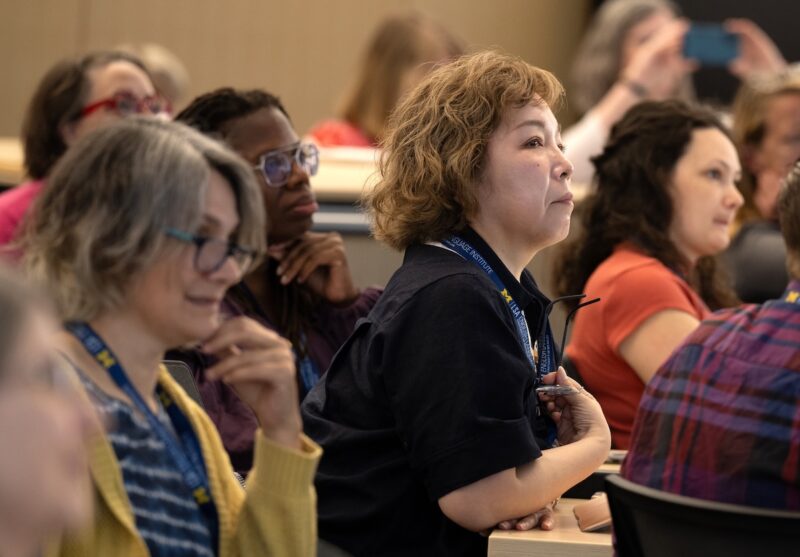
Quynn noted, too, that Steve Simpson will be stepping down in 2026 after five years as CGC treasurer and issued a call for other members to think about taking up this crucial mantle. Member-at-Large and Communications Committee Chair Eric Grunwald unveiled the in-progress home page of the new CGC website currently under development, to be launched at the end of the summer.
In order to balance the benefits of in-person connection and discussion with the funding and travel limitations faced by many in graduate communications, CGC currently alternates every year between in-person and online Summer Institutes. Yale University is already set as the host of the next in-person SI in 2027, but the CGC is still seeking a virtual host for 2026.
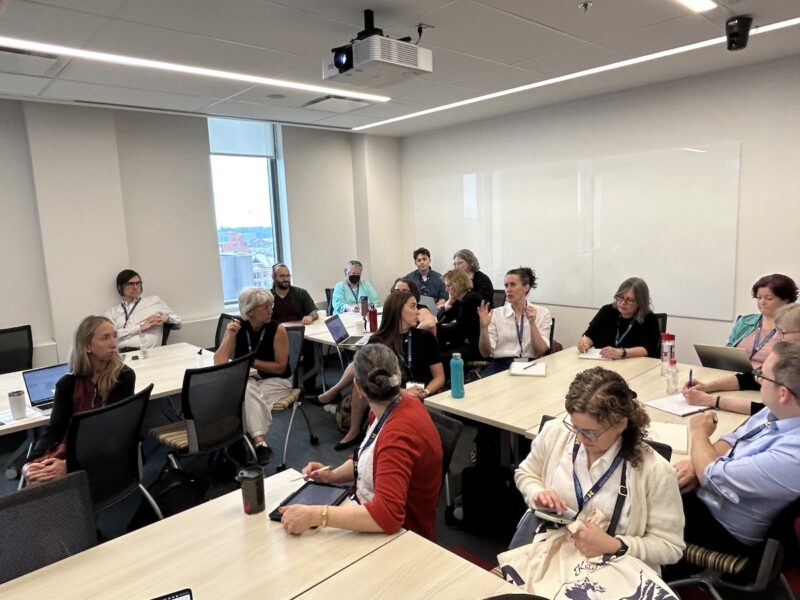
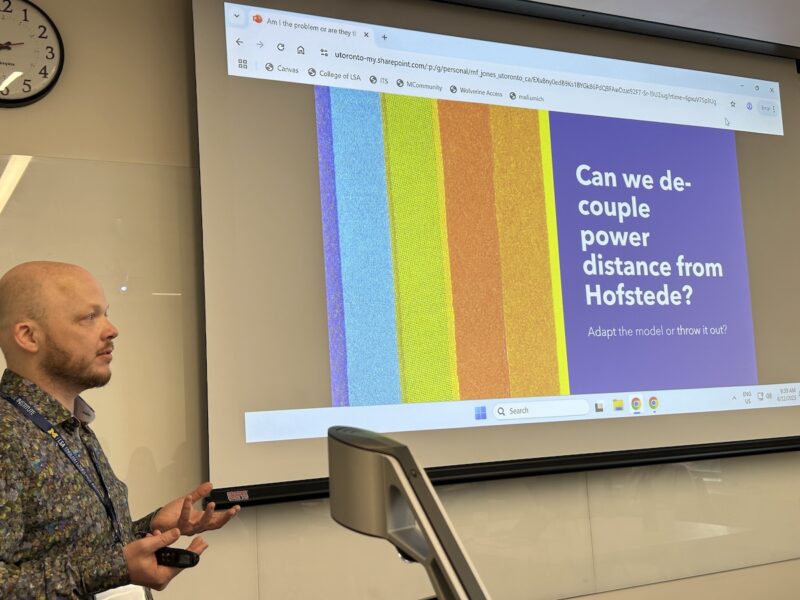
Hosting a virtual SI “is a great opportunity to help the graduate communication community, especially if your institution is in a hard-to-reach location,” says Chair Quynn. “The SI Committee works closely with you every step of the way, and Vicki Kennell [of Purdue University, last year’s host] has written up a great manual outlining everything that needs to be done and how to do it. You won’t be on your own!” (If interested, write to summerinstitute@gradconsortium.org.)
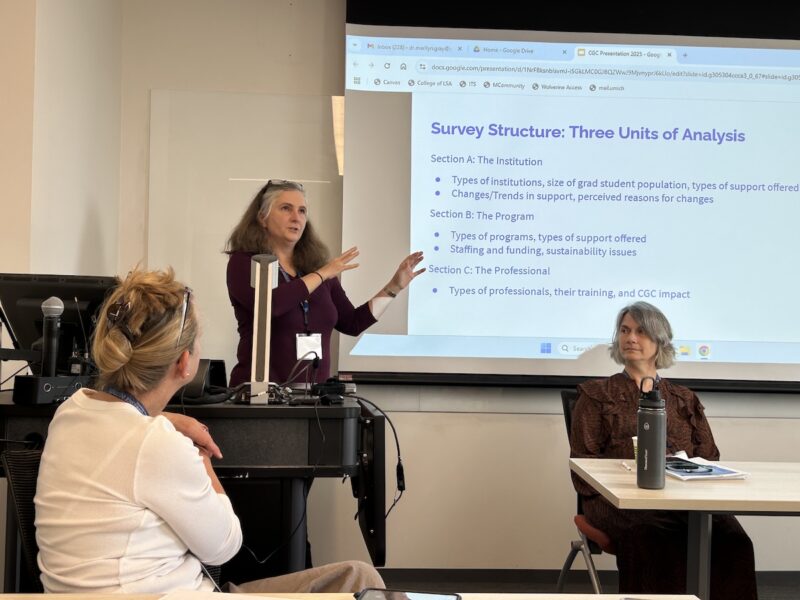
On the SI’s final morning, Quynn began the chair’s plenary talk with a quote from Ovid’s Metamorphosis—“I intend to speak of forms changed into new entities”—and noted how much graduate communication support programs are having to adapt and change to continue to support students well, and even to exist.
She then addressed the need to take time to clarify the value of our disciplines and programs amidst accelerating forces of technology, globalization, and climate change. “Before you travel home,” she urged attendees, “take some time to pause and reflect on the essential value you and your program offer your students and your university. Make sure the decision-makers on your campus can repeat and share your program’s value in the inevitable meetings where budgeting or program-cuts will be determined.”
“[T]ake some time to pause and reflect on the essential value you and your program
—Kristina Quynn
offer your students and your university. Make sure the decision-makers on your
campus can repeat and share your program’s value….”
“If we’re going to navigate the accelerating forces of change that will buffet graduate students’ communication efforts in the coming years,” she added, “we must acknowledge our own and the collective value of graduate communications support work.”
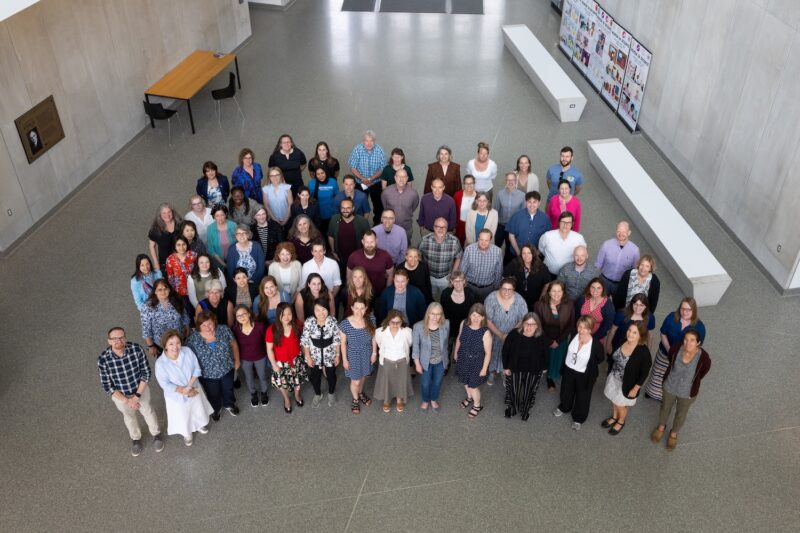


Comments are closed.